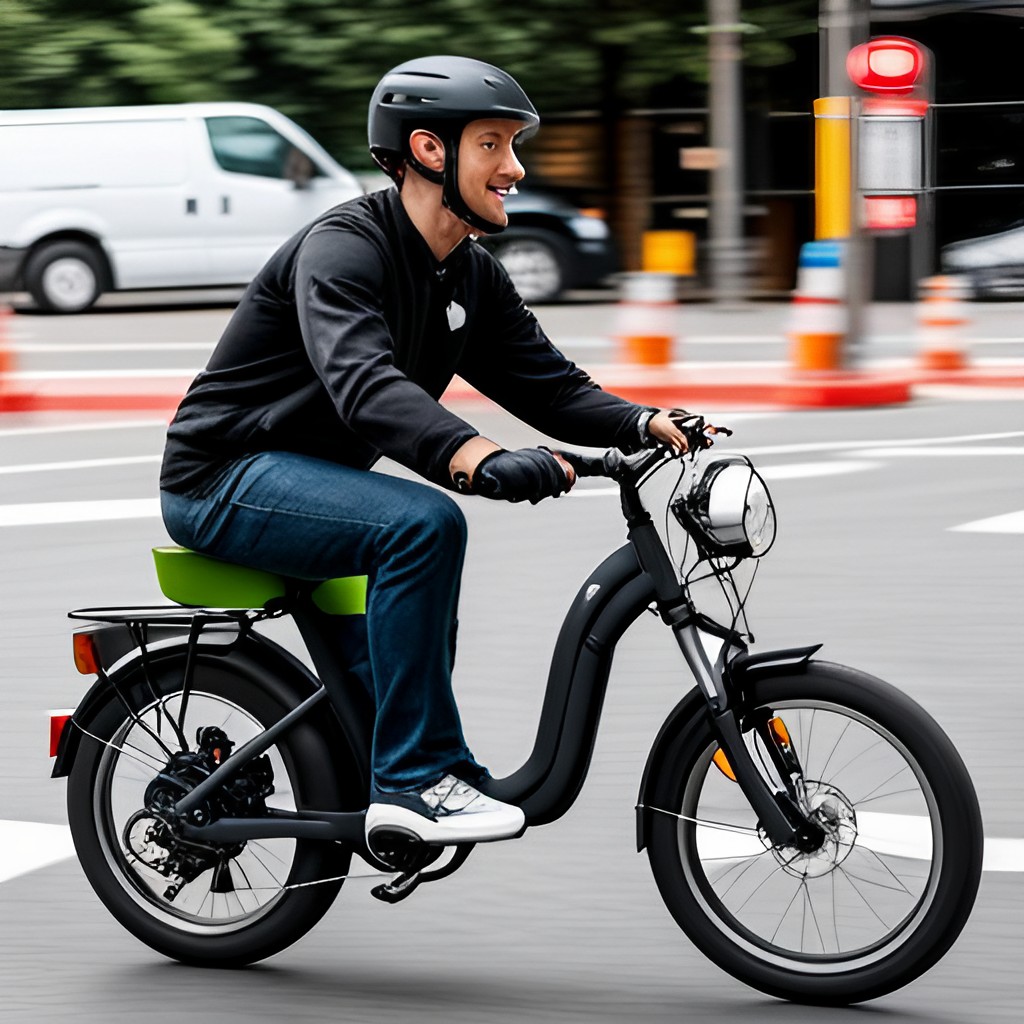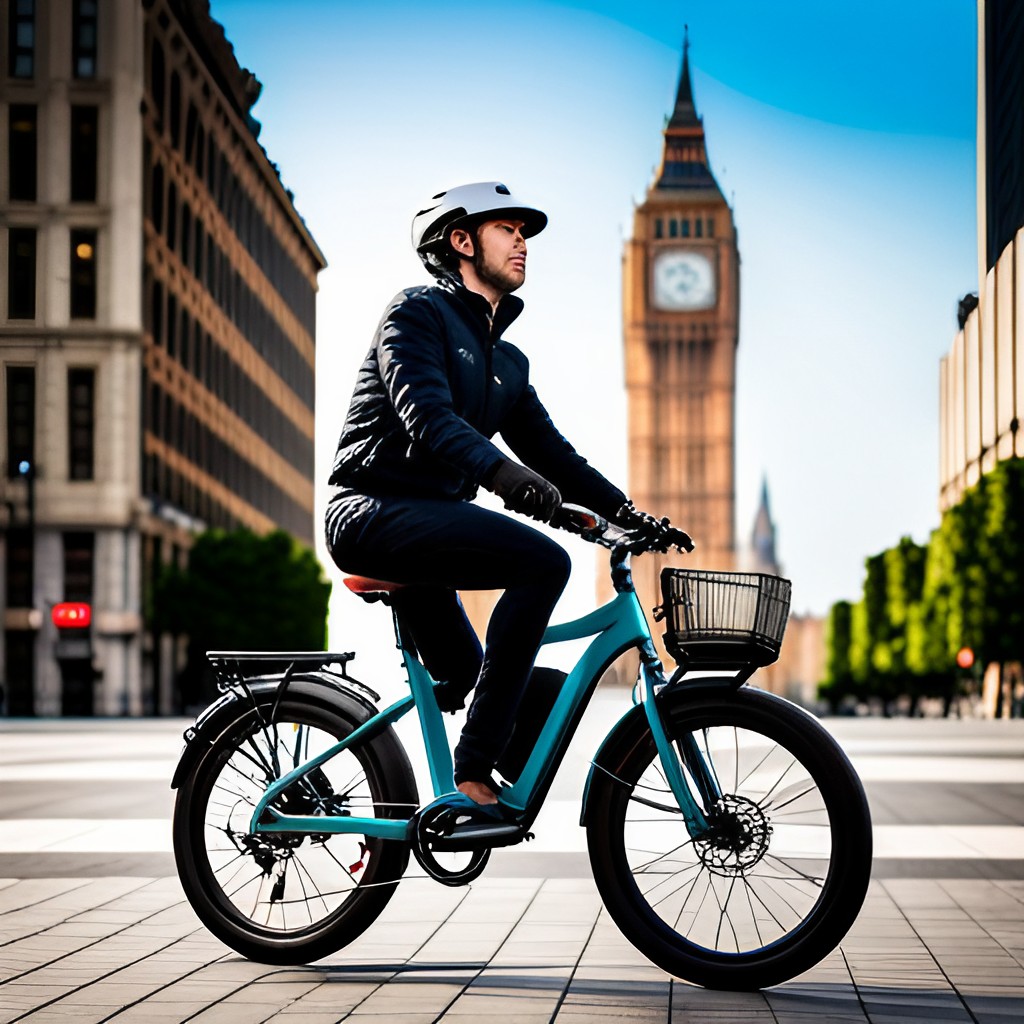Are you tired of sitting in traffic and wasting precious time during your daily commute? Have you been looking for a more environmentally friendly and cost-effective way to get around town? Electric bikes may just be the solution for you. These innovative modes of transportation have gained popularity among various demographics, from young adults to senior citizens. They offer a convenient and efficient way to travel without the hassle of traditional bicycles or motor vehicles. But before hopping on an electric bike, there’s one question that often comes up: do you need a license to ride one? In this blog post, we will delve into this topic and discuss who exactly needs a license, the different regulations in place, and helpful tips for beginners. So whether you’re a student or parent looking for a fun way to explore your city or a tourist seeking alternative transportation options while traveling, keep reading as we explore all things relating to electric bike licenses!

Introduction to the growing popularity of electric bikes and their benefits
As the world becomes more environmentally conscious, many people are turning to electric bikes as a form of transportation and recreation. These bikes are gaining popularity for several reasons, including their ease of use and sustainability. Unlike traditional bicycles, electric bikes are powered by a rechargeable battery that provides a boost to the rider’s pedaling efforts. This makes them a great option for those who want to bike to work or school without arriving sweaty and tired. Additionally, electric bikes are eco-friendly and produce fewer emissions than cars, making them a greener option for commuting. Overall, there’s no denying that electric bikes offer a lot of benefits for those looking for an alternative mode of transportation and a more sustainable way to travel.
The legal status of electric bikes and why it’s important to know the regulations in your area
Electric bikes are becoming increasingly popular among commuters and recreational riders alike, but it’s important to know the legal regulations surrounding them before hitting the road. In many places, electric bikes are classified as bikes and not motorized vehicles, which means they can be ridden on bike paths and other designated areas. However, some areas may have different regulations or require certain safety features on the bike, such as lights or a helmet. Knowing the regulations in your area can prevent you from getting ticketed, injured, or even having your bike confiscated. So before hopping on your electric bike, take the time to familiarize yourself with the laws in your city or state so you can ride safely and legally.
Different categories of electric bikes and their corresponding license requirements
The rise of electric bikes has presented new options for commuters and leisure riders alike. However, with different types of electric bikes on the market, there are different license requirements to consider before hitting the streets. For example, electric bikes that provide pedal-assist only and have a maximum speed of 20mph generally do not require a license in most states. However, for those who want more speed and power, mopeds or motorcycles may be the way to go. These types of electric bikes come with more stringent licensing requirements, like having a valid driver’s license and obtaining a motorcycle license endorsement. With so many options available, it’s important to do your research and know the requirements before making a decision on what type of electric bike is right for you.
State-specific rules for operating an electric bike on public roads and bike paths
Electric bikes have gained popularity in recent years as a cost-effective and environmentally friendly mode of transportation. However, it’s important to keep in mind that laws regarding their use can vary depending on the state you’re in. While some states allow electric bikes to be ridden on bike paths and public roads just like regular bikes, others have specific requirements for their use. For example, some states require riders to wear helmets, limit the bike’s top speed, or may restrict electric bikes from certain areas altogether. It’s important to do your research and understand the specific rules in your state to ensure you can ride safely and legally on public roads and bike paths.

Tips for obtaining the necessary license or permit, including age requirements and testing procedures
Obtaining a license or permit can be a daunting task, but it doesn’t have to be. One important factor to consider is age requirements. Depending on the type of license or permit you need, there may be a minimum age requirement. It’s important to research and understand those requirements before beginning the application process. Another key factor is testing procedures. Each license or permit may have its own set of tests to pass, which can vary in difficulty and requirements. It’s crucial to study and prepare thoroughly for these tests to ensure success. With careful planning, research, and preparation, obtaining the necessary license or permit can become a more manageable task.
Exploring alternative options such as pedal-assist bicycles or shared e-bike programs
Looking for alternative options to get around town? Pedal-assist bicycles and shared e-bike programs might just be the answer! With the increase in traffic congestion and concerns over carbon emissions, it’s no surprise that more and more people are turning to modes of transportation that are environmentally friendly and easy on the wallet. Pedal-assist bicycles offer users a little extra push to make riding up hills or long distances a breeze, while shared e-bike programs allow for easy access to electric bikes without the commitment of owning one. Not only are these options healthier and better for the environment, but they also provide a fun and unique way to explore the city. So why not give it a try and see where your pedal-assist bike or shared e-bike takes you?
Safety considerations when riding an electric bike, including proper gear and following traffic laws
Riding an electric bike can be a fun and environmentally-friendly way to commute, exercise, or simply enjoy the outdoors. However, in any form of transportation, it is important to prioritize safety. This means wearing proper gear, such as a helmet and reflective clothing, to ensure that you are visible to others on the road. Additionally, it’s essential to follow all traffic laws, including utilizing bike lanes and obeying traffic signals. By practicing these safety measures, you can have a safe and enjoyable ride on your electric bike.
The potential consequences of riding without a license and how it can impact others
Riding your motorcycle without a license might seem like a small risk, but the consequences can be severe. Not only do you put yourself in danger, but also others who share the road with you. Getting pulled over without a license can lead to hefty fines, impounding of your motorcycle, and even jail time. Beyond the legal repercussions, there are other serious impacts to consider. Riding without a license means you haven’t had the proper training to handle your motorcycle, which could result in accidents that cause serious injury or even death to yourself or others. It’s important to remember that getting a license isn’t just a legal requirement, it’s a responsibility that we all share to keep our roads safe.
Conclusion encouraging readers to research their local laws and follow them for a safe and enjoyable e-bike experience
As we conclude our discussion on e-bike safety, it is important to reiterate the role of following local laws in ensuring a safe and enjoyable e-bike experience. Different areas have different restrictions on where e-bikes are permitted to ride, speed limits, and other regulations. Ignoring these laws not only puts you at risk of legal consequences, it can also lead to accidents and injuries. Researching your local laws and abiding by them is a simple but powerful step towards a positive e-biking experience. Stay responsible, stay safe, and happy e-biking!
As electric bikes continue to gain popularity and become a common sight on the streets, it is important for riders to be aware of the legal status and regulations surrounding them. From understanding the different categories and corresponding license requirements, to researching state-specific rules for operating an electric bike on public roads and bike paths, knowing your local laws is crucial for a safe and enjoyable e-bike experience. Whether you are considering purchasing one for personal use or looking into alternative options such as pedal-assist bicycles or shared e-bike programs, do not let the lack of license or permit deter you from experiencing the convenience and environmental benefits of an electric bike. However, it’s important to remember that safety should always be a top priority when riding an electric bike. This includes wearing proper gear and following traffic laws to prevent accidents and injuries. Not only can riding without a license have legal consequences, but it can also put yourself and others in danger. Therefore, I urge you all to take the time to research your local laws and obtain the necessary licenses or permits before hitting the road with your e-bike. Let’s work together to create a safer cycling environment for everyone. So go ahead, get out there, and enjoy the ride – responsibly!